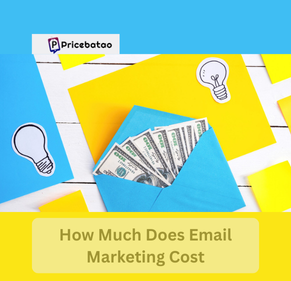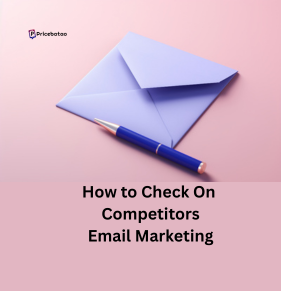What is off-page SEO?
The bundle of actions you take outside of your website to improve its ranking on search engines is off-page SEO. It primarily involves acquiring backlinks, writing guest posts for other blogs, and sharing your content on social media.
The goal is to make your website appear more trustworthy and valuable, both to search engines and to real users.
Why is off-page SEO important?
Many people think off-page SEO is just about getting backlinks, but that’s only part of it. Building links is essential, but off-page SEO includes much more. To see real results, you need a balanced strategy that addresses all areas of your online presence.
So, why is off-page SEO so important? It helps search engines and users trust your website more. When your site appears trustworthy, it has a better chance of ranking higher in search results.
On-Page SEO vs. Off-Page SEO: What’s the Difference?
When it comes to improving your website’s visibility, both on-page and off-page SEO are important. They work together towards the same goal: getting your site to rank higher.
On-Page SEO focuses on what’s happening on your website. This includes your content, title tags, URLs, headings, keyword usage, internal links, and even having a fast and SEO-friendly host. The main goal is to make sure your pages are helpful, easy to read, and relevant to what people are searching for. It also helps search engines understand your site’s purpose.
What about off-page SEO? It deals with everything outside your website that helps build its trust and reputation. This includes link building, social media engagement, guest posting, collaborating with influencers, and managing your brand’s online reputation. The aim is to make your site appear reliable and popular by gaining quality links from trusted websites.
In the end, you need both approaches. On-page SEO helps create a positive impression on search engines and users once they visit your site, while off-page SEO helps more people discover your site initially. It’s an ideal mix for long-term SEO success.
Off-Page SEO Techniques That Work
Now that we’ve discussed why off-page SEO matters, let’s look at some practical ways to implement it. If you’re curious about what you can do outside your website to gain more attention online, you’re in the right spot.
Based on our experience, these 11 off-page SEO techniques are easy to start with and can lead to great results when applied consistently:
1. Link Building (Backlinks)

There are two main types of backlinks:
Natural links: These come naturally when someone links to your content because they find it valuable. Google values these because they demonstrate real trust.
Self-promoted links: These come from outreach, such as asking a blogger, influencer, or website to link to your page, sometimes with an incentive.
However, it’s not just about quantity; quality and relevance are important too. One backlink from a high-authority site in your niche is much more valuable than several low-quality ones.
Additionally, focus on acquiring dofollow links, as these pass on “link juice” and boost your site’s authority. Nofollow links don’t provide SEO value, but they can still drive traffic.
In summary, effective link building takes time, but it leads to better rankings and increased visibility. Just be sure to follow Google’s link guidelines and aim for links that truly matter.
2. Social Media Marketing

Sharing your content on social media can drive more traffic to your site and increase the chances of getting backlinks—even if Google hasn’t clearly stated that social links directly impact SEO rankings. Still, Google does crawl social sites, and your profiles often appear on the first page when someone searches for your brand.
That’s why it’s important to keep your social profiles active, relevant, and in line with your brand’s values. A strong profile not only builds trust but also makes a great first impression.
Plus, the more people see and share your content, the more visibility and credibility your site gains across the web.
3. Guest Posting
One of the best ways to improve your off-page SEO is through guest posting, which involves writing content for another blog or website. It’s an excellent way to share your expertise, reach a new audience, and build quality backlinks at the same time.
By contributing useful and relevant content to trusted blogs in your niche, you not only expand your brand’s reach but also earn backlinks that search engines value. These links indicate credibility and help improve your rankings.
Guest posts are particularly effective when placed on high-authority, relevant sites. To find such opportunities, search on Google using terms like:
Your keyword + “write for us”
Your keyword + “guest post”
Your keyword + “become a contributor”
With the right approach, guest blogging can increase both your visibility and authority online.
4. Broken Link Building
Broken link building is a smart off-page SEO strategy that helps your website and others. The concept is straightforward: you find broken or dead links on other websites, contact the site owner, and suggest replacing that broken link with a link to your relevant content.
Sometimes the broken link might direct to an old competitor’s page or even a page you used to have but have updated. Either way, you’re offering a helpful solution, which increases your chances of getting that backlink.
Broken links often appear due to site migrations, expired hosting, or simple typos. Replacing them with working, valuable content enhances the user experience and gives your site some SEO credit in return.
5. Forums
Getting involved in forums is another effective off-page SEO strategy. Join discussions related to your niche, share your knowledge, answer questions, and assist others. Google values active, helpful conversations as they demonstrate real engagement.
To maximize your forum participation, create a complete profile and use an anchor text link in your signature. This way, every time you post, your link appears naturally with your comments.
Also, seek out forums that allow dofollow links since these can pass valuable link juice to your site and help improve your rankings.
6. Local SEO
Local SEO is an important part of off-page SEO, especially if your business serves a specific city, region, or neighborhood. It helps you appear in local search results when people nearby look for your products or services.
This strategy is essential for local shops, service providers, or businesses with multiple locations.
Here are some simple ways to improve your local SEO:
– Use location-based keywords on your website and content.
– Claim and optimize your Google My Business listing.
– Keep your NAP (Name, Address, Phone) information consistent across all online directories.
– Ask satisfied customers to leave reviews on Google, Yelp, or industry sites.
– Create local landing pages for each location if you have more than one.
– Get involved in your community; sponsor local events, join business directories, or collaborate with nearby organizations for local backlinks.
When done correctly, local SEO attracts more nearby customers and strengthens your presence in the area.
7. PR (Press Release)
Press releases are one of the most effective off-page SEO techniques to boost brand presence online. A well-made press release helps you share important updates, such as product launches, company milestones, or events, with media outlets and digital platforms. This attracts both attention and authority.
When used thoughtfully, press releases offer numerous SEO benefits. These include higher brand visibility, increased website traffic, valuable backlinks from trusted sources, and improved brand credibility. To maximize PR in your SEO efforts, always optimize your content by using targeted keywords, adding anchor text, and linking to key pages on your website.
Publishing SEO-optimized press releases not only helps your news reach a larger audience but also improves its chances of ranking on search engines. This enhances both awareness and search performance.
8. Brand Mentions
Brand mentions are important for off-page SEO, even if they don’t always include a backlink. When people discuss your brand online—through blog posts, forums, or social media—it sends positive signals to search engines about your trustworthiness and relevance.
If you create quality content, earn some backlinks, and gain visibility on platforms where your audience spends time, you are on the right path. To increase brand mentions, engage with your audience on social media, join conversations, and provide helpful, reliable responses. Over time, this will build your brand authority and encourage more people to naturally talk about your business.
9. Influencer Marketing
Influencer marketing is an effective off-page SEO strategy that can greatly expand your content’s reach and credibility. Working with respected figures in your industry adds authenticity and attracts more attention to your brand.
Start by asking influencers for quotes, reviews, or feedback for your content. When you include their input, provide context and make it visually appealing. This not only adds value but also encourages influencers to share your content with their audience after it’s published.
By creating real relationships with influencers and using their networks, you can improve your brand’s authority, draw more traffic, and increase visibility on search engines and social media.
10. E-E-A-T (Experience, Expertise, Authoritativeness, Trustworthiness)
E-E-A-T is essential for off-page SEO. Enhance it by showcasing certifications, case studies, and user success stories. Write guest posts, gain mentions, and earn backlinks from reputable sites. Participate in forums, collaborate with experts, and gather positive reviews. Secure your website, maintain transparency, and ensure consistent business information across platforms. Regular activity on social media also builds trust. Strengthening E-E-A-T boosts your credibility and helps you achieve better rankings, especially for important “Your Money or Your Life” topics.
11. Webinars & Public Speaking
Hosting webinars and virtual events is a smart way to build authority and improve off-page SEO. These sessions often attract large audiences, encourage natural brand mentions, and lead to valuable backlinks. For example, our “Exit-Intent Secrets” webinar brought long-term SEO benefits. To maximize reach, we turn webinar content into blog posts, social media snippets, and email guides. This boosts visibility across multiple platforms and strengthens our brand presence online.
Off-page SEO is more than backlinks
Off-page SEO involves more than just backlinks. A solid strategy includes building brand mentions, partnering with influencers, optimizing for local search, and using content marketing to improve your rankings and credibility.
View Forex Rate and Gold Rate
















